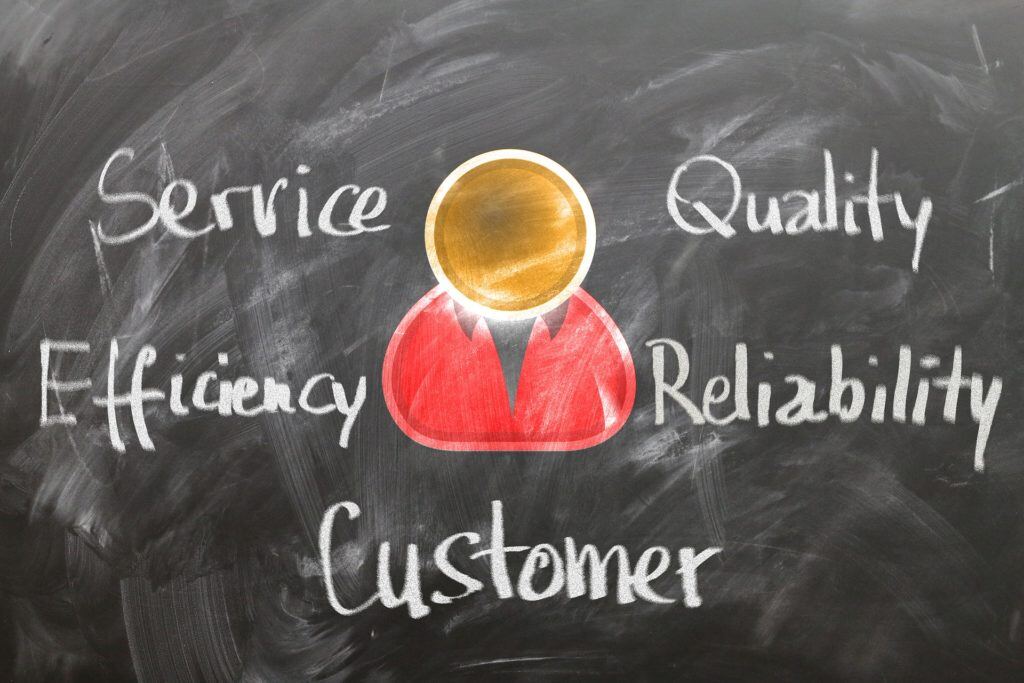Why Good Customer Service Matters Now More Than Ever

“The Founder” is a movie depicting the original McDonald’s, and how it came to be a household name.
Ray Kroc, played by Michael Keaton, was an equipment salesman in the 1950s who traveled the U.S. pushing whatever product he was representing that month. Lots of time away from home meant eating at a lot of diners and drive-ins.
Kroc quickly became used to the fork-and-knife lifestyle of leaning out the car window and waiting on his meal to be cooked. The chicken was fried, potatoes were baked, and vegetables were steamed. It usually took a while, but that was the standard at the time.
One day, he visited a small, walk-up hamburger stand with a basic menu (hamburger or cheeseburger, fries, and a drink). By the time he'd ordered and paid, a burger, fries, and a drink were placed in front of him within seconds. The cashier thanked him for the visit and invited Kroc to enjoy his lunch. Thinking it was too soon, that he had only just ordered his meal, Kroc asked for clarification. The cashier insisted that this was his meal and invited him to sit anywhere and enjoy it. A brief insistence occurred as Kroc could not believe that his food was available so quickly. He glanced toward the kitchen and took in the revolutionary process created by the owners. A masterful and elegant dance of preparation allows for fresh, hot food to be available in seconds to the paying customer.
Kroc met with the owners, became a partner, and fast food was born. Now, McDonald’s is one of the most recognizable global food chains.
The standard was changed. One man had an extraordinary experience and knew that nothing would compare.
Now, think of the last time you were waiting in line at any fast-food establishment and felt impatient. The line was too long, the person at the window decided to check their order before pulling away, the prices went up, and the food wasn’t steaming hot. Whatever the reason, this once extraordinary experience is now less than the norm. Not just the food industry, but nearly every aspect of first-world life has been (recently) put on fast-forward. We demand faster service and results, but we also have begun demanding the highest level of service to match.
In recent years, a new standard has emerged -- the focal shift from Customer Service to Customer Success. Much like a healthy mechanic shop, the difference is focused on preventative maintenance rather than reactive maintenance. Customer Success is the proactive approach to creating client relationships and opening lines of communication to prevent an understanding issue. Customer Service still has a place in the world, as products and services are still imperfect and sometimes require reactive assistance (much like a breakdown or an accident). If I, as a consumer, am properly trained and regularly communicated with, I’ll be prepared to solve my own issues as they arise and contribute constructive feedback for the products and services that I use. That proper feedback drives the next phases of products so that all parties are faced with a more positive outcome.
With all the focus shifting to Customer Success and a proactive approach to doing business, positive Customer Service is needing to follow suit and provide meaningful reactive support. It’s easier to remember one negative experience than it is to recall five positive ones. More than that, customers are more likely to report or submit a negative survey than a positive one. Not because they didn’t appreciate the positive experience, but because a negative one demands results whereas a positive one is simply expected. Had Ray Kroc waited 10-15 minutes for his hamburger, he wouldn’t have batted an eye. If we wait 10-15 minutes for a hamburger, we want compensation for our time and money. What’s the old saying, “Everything’s impossible until it’s not”? A focus on customer success means doing more than the standard, especially as that standard is changing. Soon, the expectation will be a positive experience coming from relationships in business, not simply products performing as they should.
To learn how RTA can help your fleet operation succeed, schedule a demo with our Sales team today.
About the Author: Dallin Dastrup is a Customer Success Manager at RTA. With experience in Sales, Training, and Support, Dallin brings his vast knowledge to help our fleet clients succeed. A proud father of two beautiful daughters, Dallin resides in Arizona.
